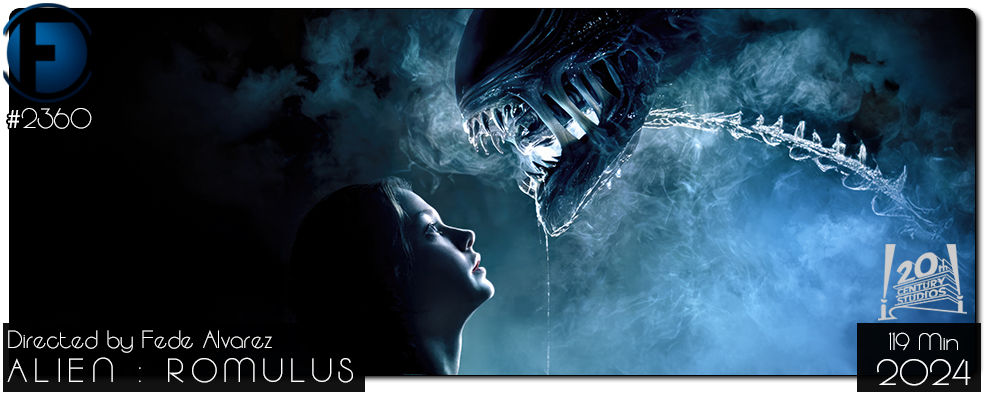Movie Review – Alien: Romulus
Principal Cast : Cailee Spaeny, David Jonsson, Archie Renaux, Isabela Merced, Spike Fearn, Aileen Wu, Daniel Betts.
Synopsis: While scavenging the deep ends of a derelict space station, a group of young space colonists come face to face with the most terrifying life form in the universe.
********
This review contains major spoilers. Do not read on if you have not watched Alien: Romulus.
Attempting to correct the many, many issues with the expanding Alien franchise – now into its seventh feature film with the arrival of Romulus, Fed Alvarez’ midquel endeavour trying to right the ship that has veered off course – literally and figuratively, given the core premise of this film involves an out-of-control space station, and while at first blush the movie replicates the aesthetic established by Ridley Scott way back in 1979’s Alien, there’s a number of significant problems and issues to be found that reduce one’s enjoyment of it the more one thinks on things. Even in saying that, Alien: Romulus is a far cry from the bad old days of Alien: Resurrection, or those Alien V Predator movies, or even Ridley Scott’s ill-judged Prometheus and Covenant, and sits comfortably as a middle-tier entry into the franchise right behind the original and James Cameron’s 1986 sequel.
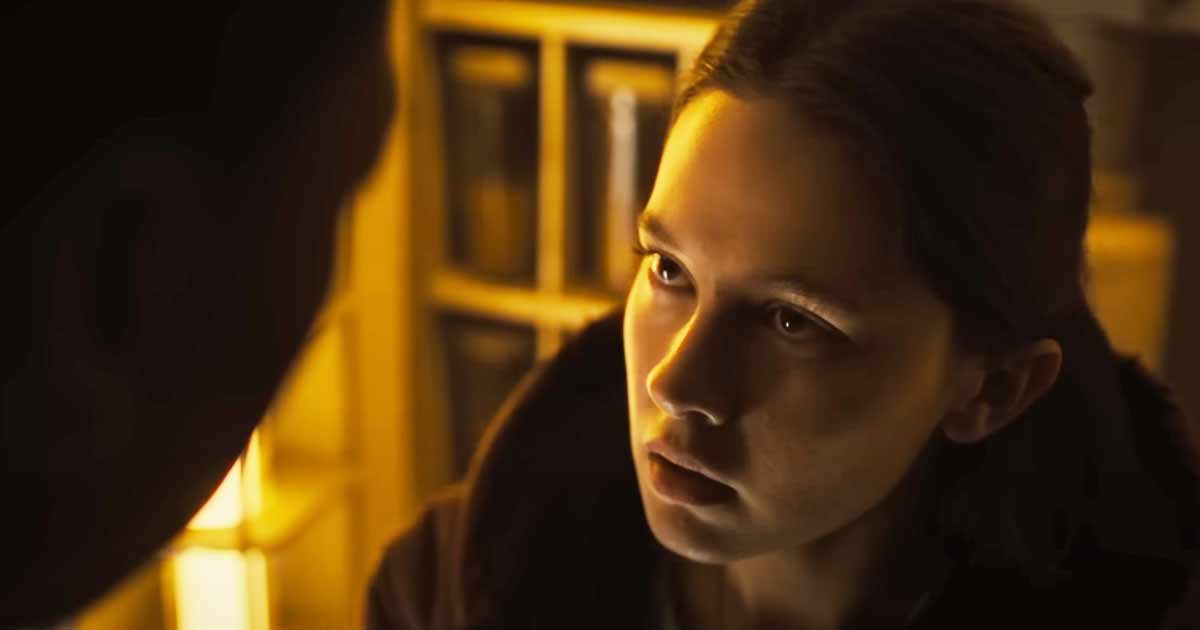
Set between the events of Alien and Aliens, Alien: Romulus occurs on a distant terraformed planetary colony of Jackson’s Star, where Rain Carradine (Cailee Spaeny – On The Basis Of Sex) and her synthetic human “brother”, Andy (relative newcomer David Jonsson) have accrued enough credits to escape their exhaustive servitude to the Weyland-Yutani Corporation’s mining operations, only to be thwarted by a sudden and unfair change in time allotments. Rain decides to join her ex, Tyler (Archie Renaux – Shadow & Bone) on a mission to locate, rendezvous, and utilise an apparently abandoned spacecraft that has emerged inside the planet’s orbit, hoping to cry-sleep the decade long journey to a far more utopian world of Yvaga. They are joined by Kay (Isabela Merced – Dora & The Lost City of Gold), Tyler’s pregnant sister, the garrulous and antagonistic Bjorn (Spike Fearn – The Batman), and Navarro (Aileen Wu), Bjorn’s girlfriend, on this unauthorised mission. Upon arriving at the space station, which is projected to collide with Jackson Star’s asteroid ring very soon, the group soon encounter a particularly nasty organism that threatens to kill them all – an alien, as well as innumerable facehuggers, all hell-bent on capturing and breeding with the erstwhile escapees.
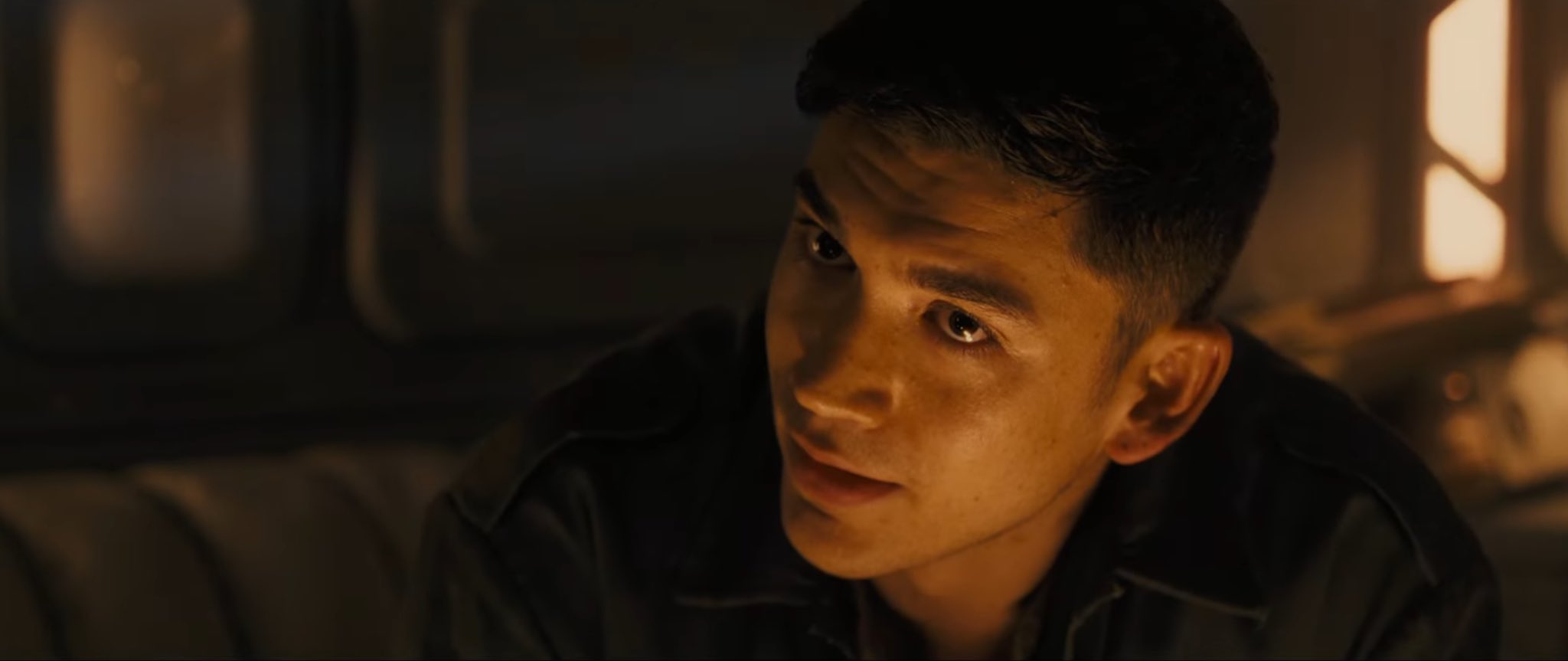
Oh, the Alien franchise. For the last forty-odd years, Hollywood has tried – and largely failed – to recapture the ground-breaking success of Ridley Scott’s seminal sci-fi truckers-in-space masterpiece that polarised popular culture and presented a grittier, serious, more acerbic (ha! pun intended) take on the genre than the 70’s had otherwise provided. James Cameron’s blockbuster action entry, Aliens, was an instant classic and propelled Cameron to the directorial A-list and star Sigourney Weaver to an Oscar nomination for her work as Ellen Ripley, arguably one of cinemas all-time top female characters ever. Since then, however, the slide has been gradual, and in recent years the drop off has almost been complete, with even Ridley Scott failing to capture the same zeitgeist-busting success with Prometheus, a truly terrible film, and Alien: Covenant, a film that had a lot of positives, save the most necessary one: box office success. Audiences craving another hit of adrenaline were left adrift by a shift in focus to a Michael Fassbender-centric series of prequels that bastardised the mystery of the alien monster’s genesis with gobbledeygook pseudo-science, and a lot of fans were left with a sour taste following Covenant’s subsequent failure to ignite global takings.
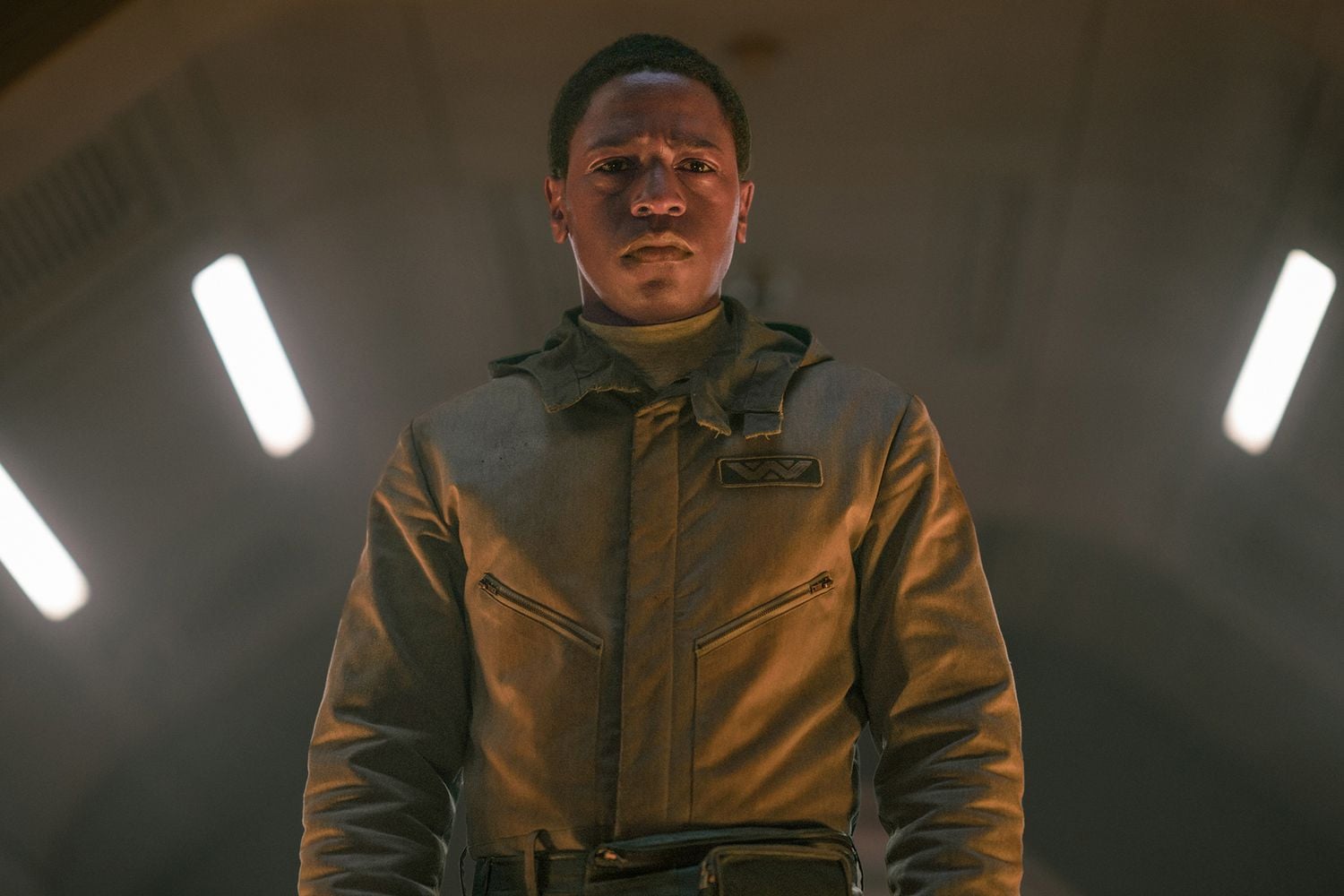
Seven years since Covenant, the now Disney-owned 20th Century Studios (formerly 20th Century Fox) rebooted their equally uneven Predator franchise with the Disney+ prequel debut of Prey, directed by Dan Trachtenberg, which breathed new life into an otherwise seen-it-all-before IP that had audiences had grown weary of. It was this success, I think, that spurred Disney to revisit the Alien franchise, tapping horror filmmaker Fede Alvarez to to direct a new film that took us back to the franchise’s glory days, before Ripley Clones and Promethean seed dust diluted the property’s scream-factor. It was time for Alien to be scary again. Alvarez is best known for helming the self-contained thriller Don’t Breathe, as well as the gloriously violent 2013 remake of Evil Dead, so his pedigree with gore, blood and scares is absolutely without question. What is questionable, however, is his ability to write a convincing story that offer compelling characters, or an intuitively engaging premise with an existing IP, that moves the franchise forward and satisfies a hungry audience. Neither Don’t Breathe or Evil Dead were particularly clever, relying on style over substance more often than not, so while I was agreeable to Alvarez being signed to direct from a visual standpoint, I wasn’t quite as pleased that his writing partner, Rodo Sayagues, was also along for the ride.
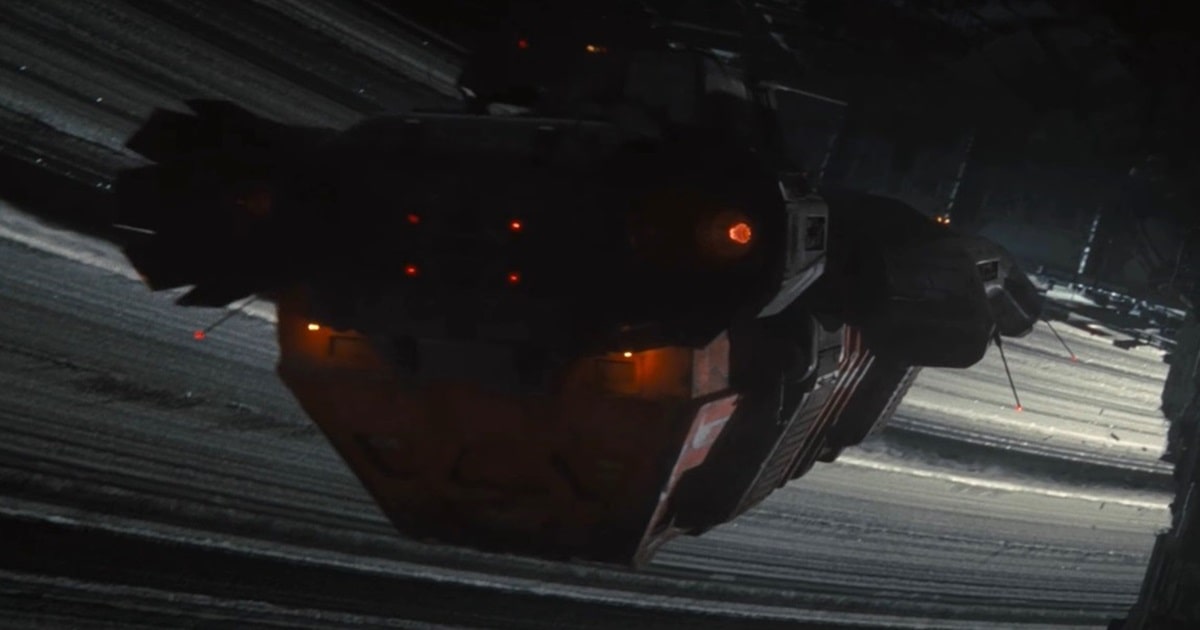
The film is very… um, vaginal in its visual cues. Yes, I said vaginal – not virginal, which indicates a wholly different tone. Romulus is filled with subliminal “birth” iconography, from a very vulva-esque alien-breaching sequence to even the design of a laboratory ceiling, not to mention one of the characters literally giving birth in a climactic third act sequence. You might also think the film taps into the Romulus & Remus motif from Ancient Roman origin myth; sadly, the Romulus of the film’s title isn’t the point of the film’s rebirth mandate – moreso a franchise rebirth than anything dissected intellectually on-screen, at least, and while this crushing disappointment didn’t last long it was fun to see the filmmakers making a not-so-subtle subtextual attempt to top the Ripley’s Pubic Hair online debate from Alien. The fact that the central computer system is called “Mu-Th-Ur”, and since day one has been emblematic of the franchise’s long-standing themes of motherhood, birth and unfulfilled maternal instinct, is a feeling too intelligent for Romulus’ more straightforward narrative hooks, but, at a production level at least, it’s cool as hell.
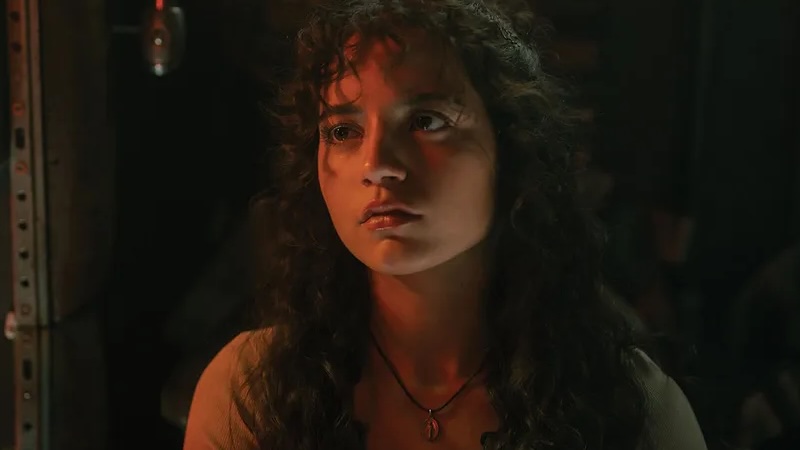
Unfortunately Alien: Romulus is a film that’s both exquisitely simple and far too overstuffed with worldbuilding to make much sense beyond the superficial. The three original films in the franchise were elegantly simple in their core premise – a group of people are in an isolated location and have to fight one (or more) of the alien creatures, with the resulting body count designed to ratchet up the tension. Easy. Create some interesting characters to populate said film, throw in some general angst and personality clashes, and you have a series of films ripe for horror to unfold; and to a degree Alvarez and his team have absolutely followed this template perfectly. A group of five people and an android are stuck aboard an abandoned research facility destined to crash through an asteroid field into oblivion, with an alien (or, in this case, a lot of aliens) lurking in the shadows. My god, it’s the stuff nightmares are made of! It’s a knockout, home-run, last-wicket, final shot slam-dunk, right? Well, yes, but also no.
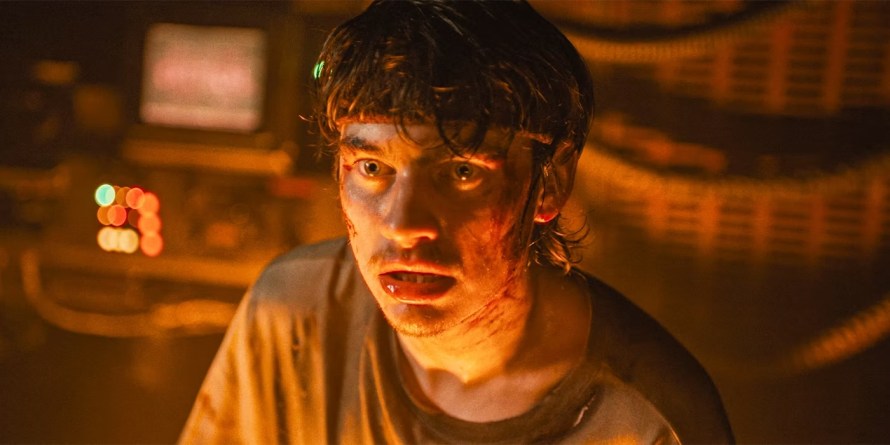
Let’s investigate the positives. The simple premise engenders immediate suspense and terror, exactly what I demand of my Alien films. The film’s production design is an absolute replica of the Weyland-Yutani industrial brutalist design aesthetic established by Ridley Scott (or, moreso, original designer Ron Cobb) back in Alien, and the harsh human existence of a terraformed planet and the near slave underclass brings with it a truly suffocating sense of implacable dread, as if the characters are all doomed before they even begin. The vast, silent isolation of distant space permeates the franchise’s early entries and Alvarez has maximised that again here, to my genuine enjoyment, while familiar franchise sound effects skitter and bleep through the tremendous surround sound design work on display. As a throwback to the original two films, Alvarez has put a strong focus on practical physical effects over computer generated ones where he can, particularly in relation to the alien creatures themselves, with arrive with a tremendously iconic look and real-world genuineness that can’t be replicated in bits and bytes. Regardless of your thoughts on the film overall, nobody can deny the influence of HR Giger’s original alien design, and its legacy through the decades since.
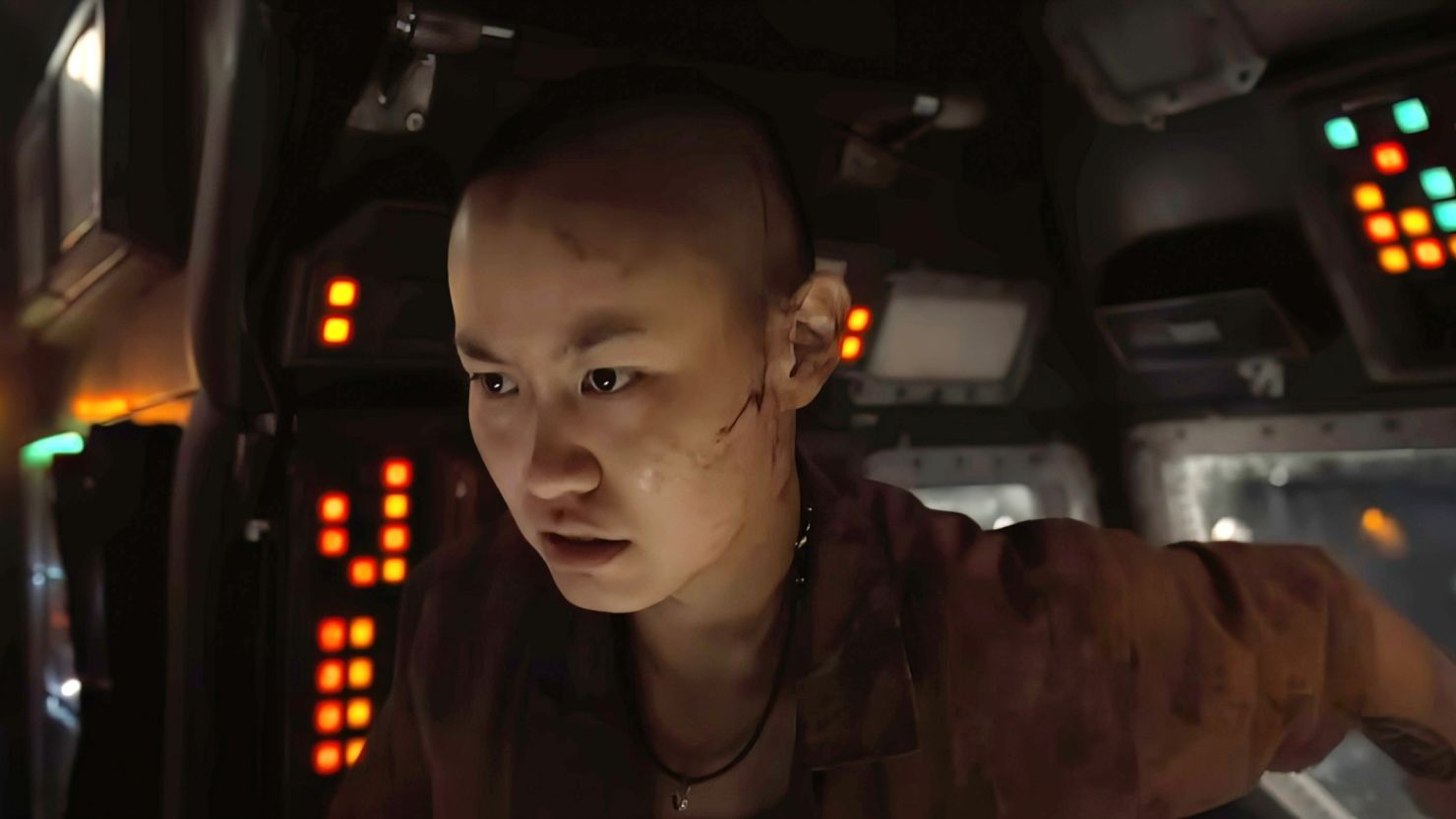
The various face-huggers and Xenomorphs looks stunning, and truly horrifying despite Alvarez never quite generating the same kind of skin-prickling terror Ridley or Jimmy C managed to access; Alvarez seems to use the alien creatures as a tool for the plot, rather than an ends unto themselves, inasmuch as for some reason the film never really taps into that cerebral primordial lizard-brain fight-or-flight response we call got the moment Hicks revealed a swarm lurking in the ceiling in Aliens. Part of the issue speaks to a wider problem for the Alien franchise, and Hollywood’s (mis)handling of the property: we know what the aliens look like, and their life cycle and raison d’etre is well understood, and an overexposure in popular culture has somehow made them less frightening for what they are as opposed to what they do. This presents a tough problem for Alvarez, in how to make them truly terrifying again while also attempting to tie in plot threads revealed in other films – notably, Prometheus, sadly, which I admit made me internally groan when it was referenced midway through. I get it, Alvarez is serving multiple masters in both 20th Century, Disney, fan expectation and narrative expansion, none of which are conducive to excellent storytelling. Hell, even the film’s batshit crazy final act turn, introducing the most astonishing take on alien-human hybrid Frankenstein-ism to this point, feels like it’s been done before – it has, with Alien: Resurrection – and it robs the “Ha! Betcha didn’t see that coming!” feeling Alvarez and his team were likely aiming for of any legitimacy. It’s crazy simply for the sake of being crazy, which would work were the script stronger or the ensemble characters more grounded and realistic.
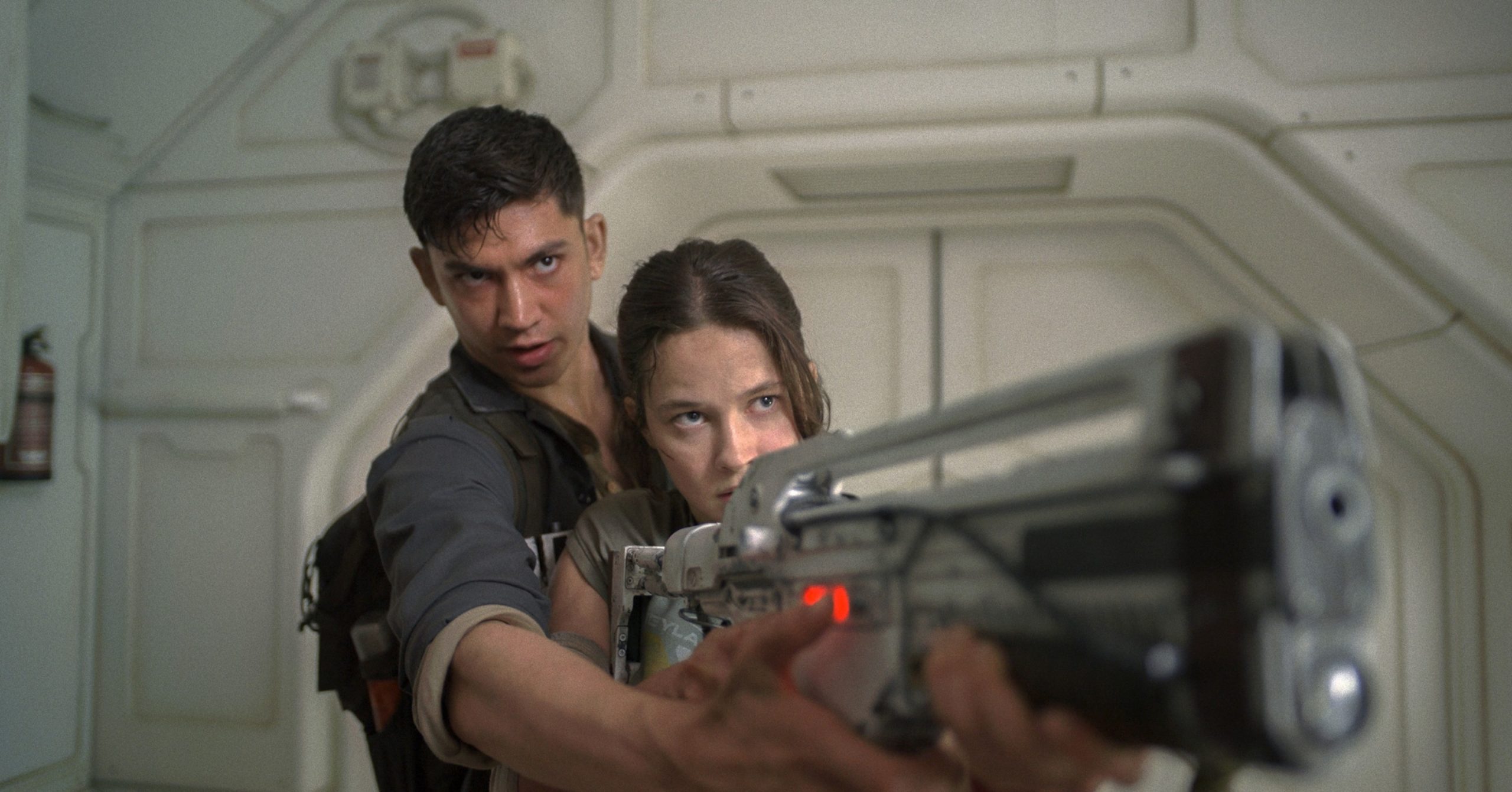
In terms of production design, I adored Romulus‘ adherence to the franchise’s most popular aesthetic and the claustrophobic set designs of the various vessels and undergalleys, walkways and half-destroyed laboratories the small ensemble stumbles into. There’s no affection for humanity in any of the Weyland-Yutani constricted, railing-and-painfully-metallic utilitarianism design work, a propensity for cluttered hallways and ill-fitting antihuman edginess forming a tautly claustrophobic sense of incarceration whenever anyone is inside something. The film’s cinematography was subdued almost to a dull glow, maximising the “shit happening in the corner of your eye” chills Alvarez is a master at, and that Ridley Scott set-up in the original film. I apologies for continuing to reference Alien but Romulus apes Scott’s work so closely that comparisons are essential – they also form a lot of what I found problematic with the movie. The film’s sound design, music, editing and visual effects are superbly mounted, and speak of very much a no-expense-spared production, while the various on-screen graphics and “old tech” nature of the world-building were a joyous throwback to real-life “old tech” that was then “state of the art” back in 1979.
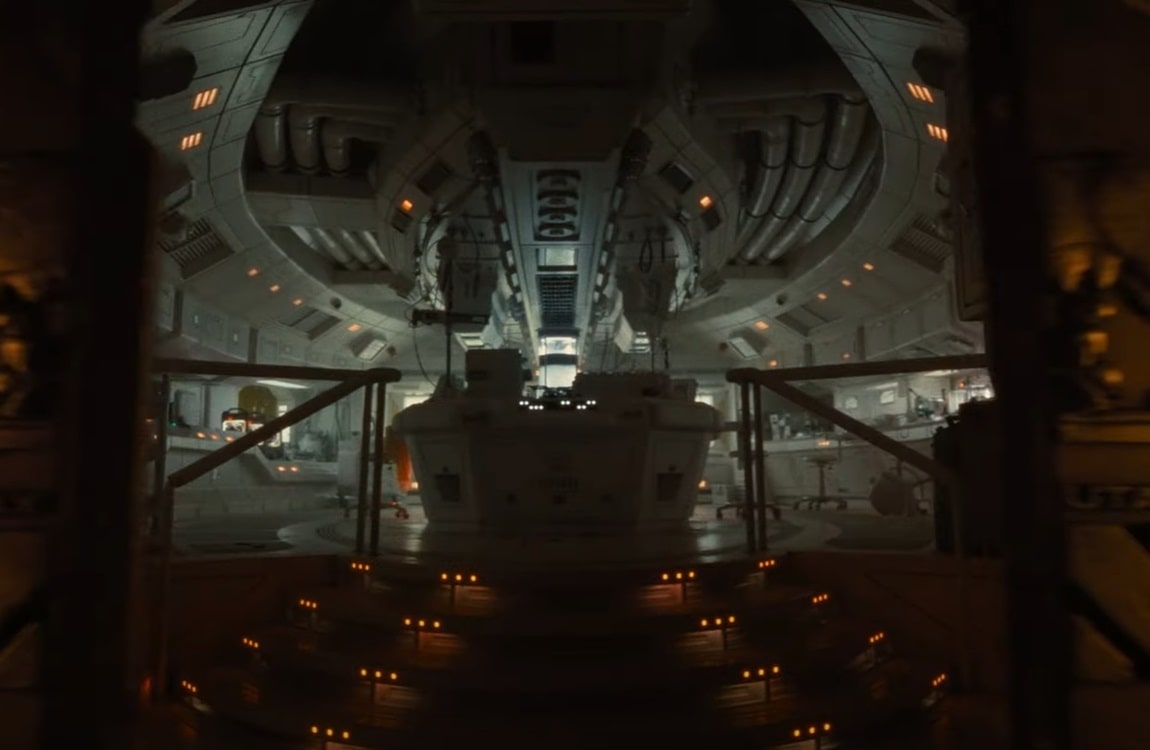
And it’s here, with throwbacks, that Romulus comes almost completely undone. The film, to its detriment, is both enslaved to Ridley Scott’s Alien and trying desperately to escape its pull. The characters, notably Cailee Spaeny’s Rain, who forms the Ripley proxy in this instalment, isn’t as nearly engaging or empathetic as Sigourney Weaver’s legendary character, and not because Spaeny is a poor actor (she’s not, she’s just given shit material to work with) but rather because the writing is so predictable at times it’s borderline woeful. A couple of major plot twists are foreshadowed in such clumsy ways as to make the eventual reveals (and in particular, the really major plot twist at the end) seem… I don’t know, silly? Repetitive? The film even shoehorns in some of the first two film’s lines of dialogue in a weird, uncomfortable reprise no doubt intended to make fans smile, but the decision to turn a serious, well loved franchise into Marvel-esque wink-wink inanity is an egregious choice I think the filmmakers will regret in years to come. Of major – and I repeat major – concern is the decision to utilise the likeness of Alien star Ian Holm, who died in 2020, in a bizarro digitally augmented AI/CG effect to represent another of the Ash model androids. It’s a major plot development within Romulus’ nostalgia-bait, and one that no doubt tickled the filmmakers with an ability to do it; but it’s done so poorly, in a manner so awfully cringeworthy it almost definitely pulls you out of the film (despite being signed off by the actor’s estate and family), and I absolutely hated it. Easily one of the worst things I’ve seen on the big screen in years. Just a terrible creative decision; not only does it undermine the resolution to the Ash character in the first film, it’s handled to dreadfully by Alvarez here it doesn’t even feel like a natural component to the narrative, just a “look how clever we are” moment stretched out to breaking point by a studio with the cash to burn on it. People might suggest a similar problem with Lance Henriksen’s reappearance as the Bishop avatar in both Alien 3 and the first Alien V Predator, but those additions felt more genuinely earned as story points for a reason than here in Romulus, where Holm’s uncomfortably terrible AI-generated face took me back to seeing Dwayne The Rock Johnson as the Scorpion King via Nintendo-level VFX in The Mummy Returns. Ghastly.

The other callbacks of note include two references to James Cameron’s Aliens, in which one of the characters here wields a powerful automatic weapon namechecked – actually fucking namechecked – as being “one used by the colonial marines”, while the absolutely gobsmacking and out-of-nowhere inclusion of the “Get away from her you… bitch” line, one that draws raucous applause from any audience when Ripley says it, lands with a laughable thud as acted by one of the poor cast saddled with it here. I mean, why not invent your own kickass dialogue? Why steal from Cameron, or Ridley Scott for that matter? The Holm-avatar repeating the “but you do have my sympathies” line from Alien at a crucial moment also made me angry – not for the actor or the VFX artists working as the character but rather the decision to include such a memorable line again in the first place. We get it, this is an Alien film, but somehow Fede Alvarez seems to have constructed this whole movie from the better (and worse) aspects of the other films in the franchise. The appeal of the entire Alien property to-date has been the fact that a number of different directors have attempted to put their spin on the property (for better or worse), and not just copy parts of it wholesale, but Alvarez takes what I consider the easy way out and taps too hard into the nostalgia by replicating well-known iconography (another egregious example has Cailee Spaeny’s poor Rain emerge from an elevator cage door surrounded by smoke and steam much like Ellen Ripley’s hero moment when she’s starting her search for Newt in the power plant basement in Aliens), and while Spaeny is definitely a Beautiful Person she doesn’t carry herself even half as hard as Weaver did in the same moment.
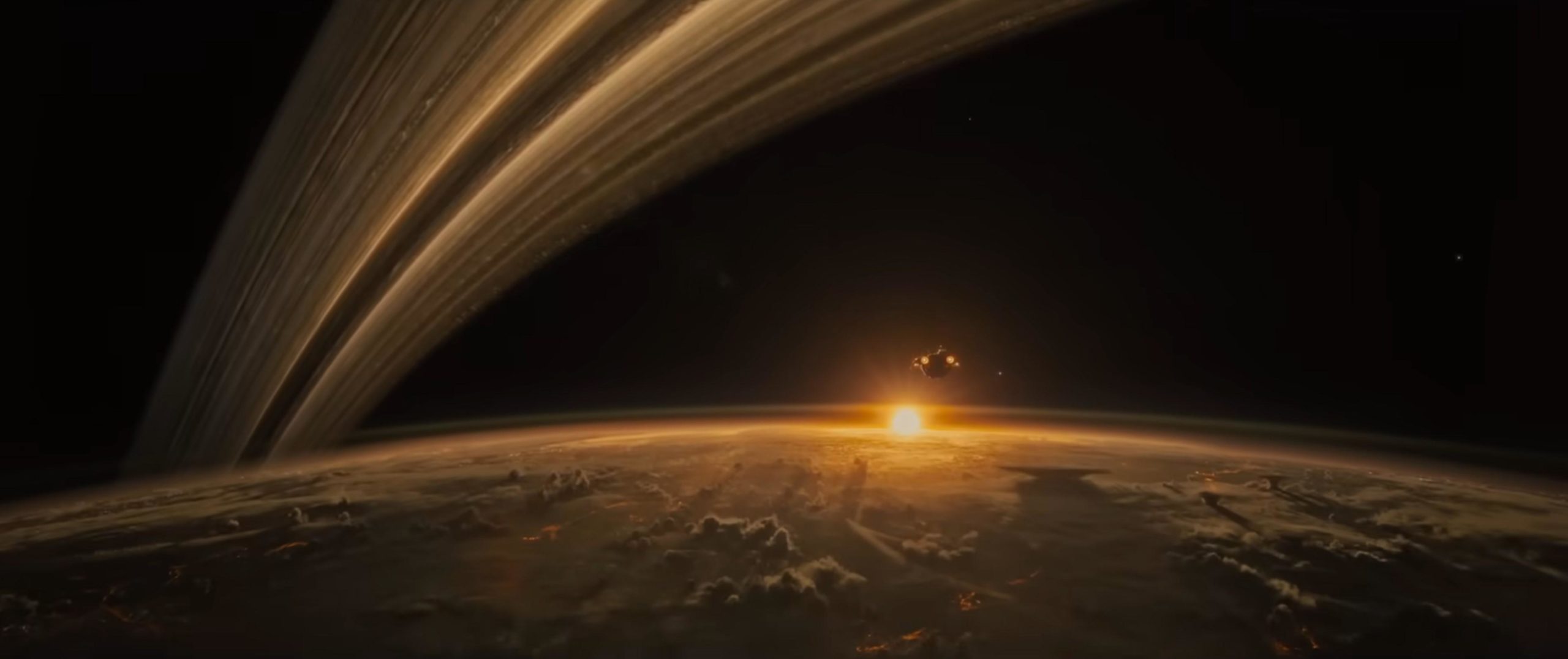
I guess that’s the core issue associated with the film’s lack of emotional connection for me. The cast, as hot as they all are, just don’t feel like grounded, real-life folks like you or I. The cast of Alien – Weaver, Skerritt, Kotto et al, were not your traditional “movie star” lookers, they were everyday, run-of-the-mill average joes stuck in space – they could have been any of us. That’s the essence of it. Aliens, for all its firepower, followed a similar aesthetic in that the cast were all a variety of dropkicks, dropouts and capital-C characters – larger than life but living and breathing like they belonged there. Alien: Romulus has a lack of identifiable characters – the actors can’t do much with such thin material, and at no point past either Spaeny or David Jonsson’s terrific turn as Andy are any of the other roster of characters memorable, like at all. Generic cannon fodder archetypes fill out a kill count but they do little for re-watch when they’re so poorly developed and unable to anchor themselves within the world in which they’re set. It also doesn’t help that all the major characters look like they’re kids, or at best early twenties; without that lived-in experience they look like high-schoolers taking on one of cinemas most vicious killing machines. With such a young cast, there’s a lack of authenticity to the apparent world-building by Weyland-Yutani in having such young folks working hard-labour mining on a distant world, and maintaining these catwalk model looks. No amount of mud or grime can make Isabela Merced unattractive, she’s hot as hell and completely unbelievable as Kay, despite delivering the film’s – nay, the franchise’s – best reactive scream of terror. Like, how am I supposed to care about these kids if they all look like they stepped out of the Maze Runner franchise.
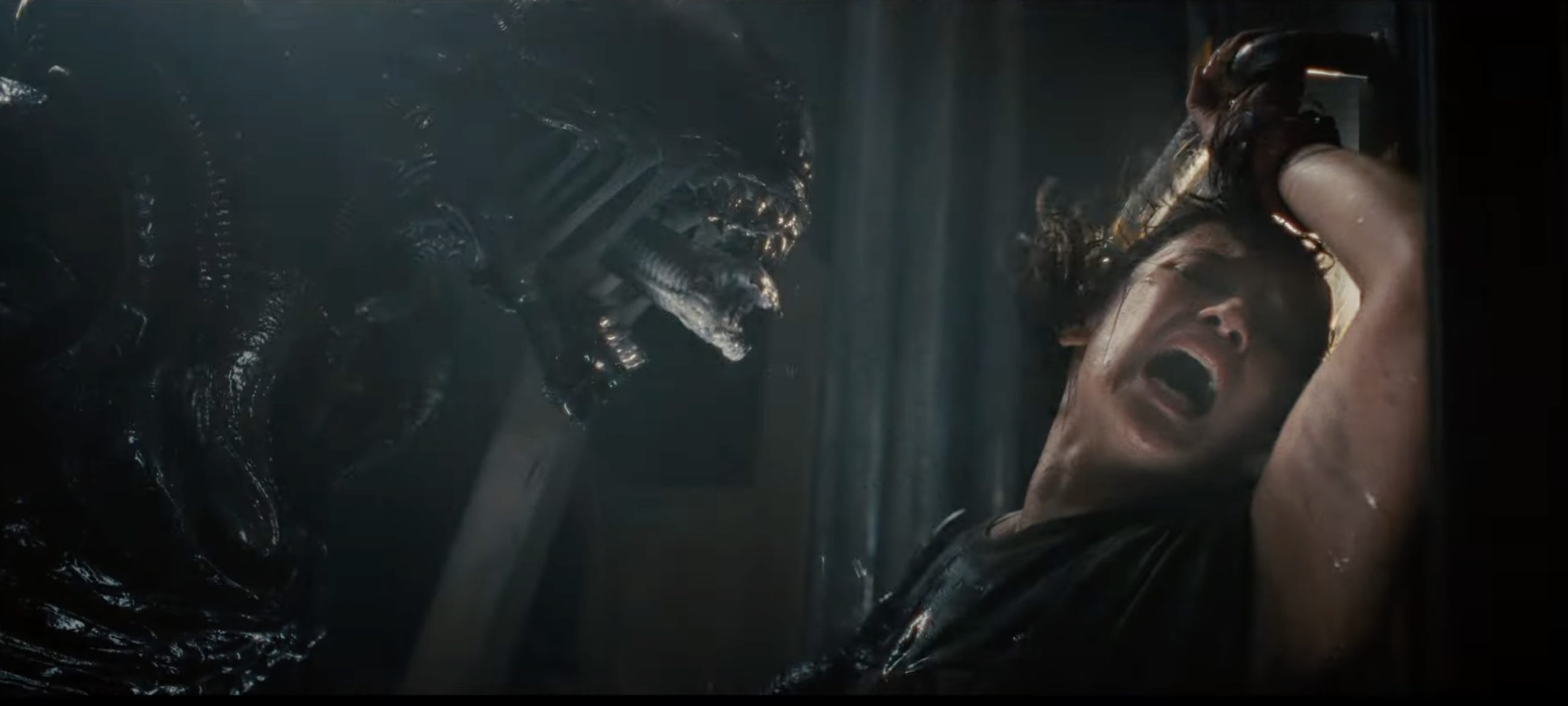
In spite of all this, all these issues and problems and “the more I think about it, the less it makes sense” creative choices, I really did enjoy watching Alien: Romulus. I definitely rate it as an above average entertainment experience regardless of the nonsensical plot choices and poorly written character beats – at one point it’s inferred that Andy, a young-looking android, was reprogrammed by Rain’s father to… look after her, I guess, without really explaining why or expanding on this throwaway dialogue to connect it up at a deeper level, and it’s just left unresolved (to my liking) at the end. I suspect once some time has passed and further assessment of the film is given, any arbitrary score for this one will go down, not up. I would argue it’s a stronger horror film than Alien 3 or Resurrection, serving comfortably as a companion piece to the original two films, and is nowhere near as bad as either the AvP duo or the prequel films of recent times. It does feel good to have a genuine attempt to return to the property’s roots back on the big screen, and I just hope with better writing and stronger character work by a solid cast we’ll see frosty, film-noir sci-fi once again atop the zeitgeist. With all the aforementioned caveats in place, and with considerably low expectations to accompany you, I recommend Alien: Romulus for nothing else than the absolutely bonkers final act twist that will make your eyes pop out of your head.

